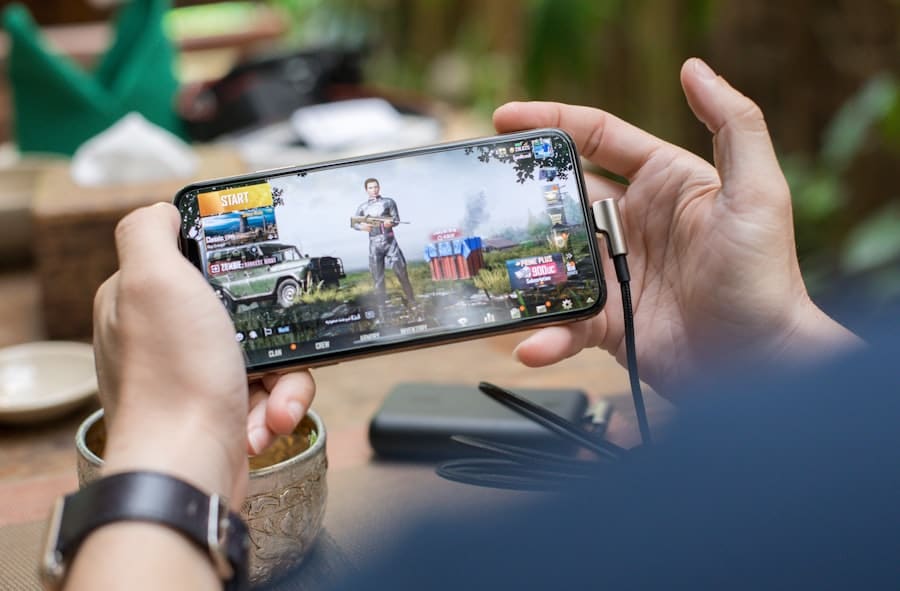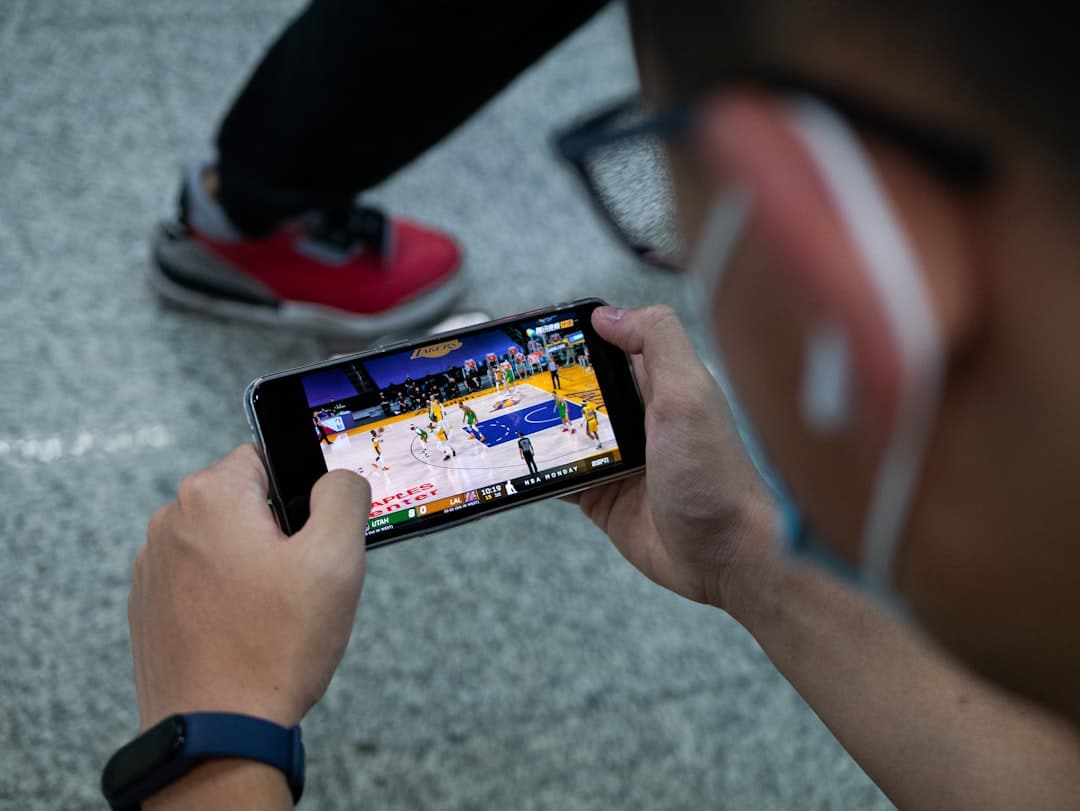The ascent of mobile esports has been nothing short of meteoric, transforming the landscape of competitive gaming in a relatively short span. With the proliferation of smartphones and tablets, gaming has become more accessible than ever, allowing players from diverse backgrounds to engage in competitive play. Titles such as “PUBG Mobile,” “Call of Duty: Mobile,” and “League of Legends: Wild Rift” have not only captured the attention of casual gamers but have also established themselves as serious contenders in the esports arena.
The convenience of mobile gaming, combined with the high-quality graphics and gameplay mechanics that modern devices offer, has led to a surge in both player participation and viewership. The global reach of mobile esports is particularly noteworthy. Unlike traditional PC or console gaming, which often requires significant financial investment in hardware, mobile gaming allows individuals to participate with devices they already own.
This democratization of access has resulted in a more diverse player base, with participants hailing from various regions and socioeconomic backgrounds. Countries like India, Brazil, and Southeast Asian nations have seen explosive growth in mobile gaming communities, driven by affordable smartphones and widespread internet access. As a result, mobile esports has not only become a platform for competition but also a cultural phenomenon that resonates with millions around the world.
Key Takeaways
- Mobile esports has seen a significant rise in popularity, with more gamers turning to mobile devices for competitive gaming.
- Mobile esports provide competitive opportunities for gamers who may not have access to traditional gaming setups, opening up the playing field for a wider range of participants.
- Tournaments and leagues dedicated to mobile esports are on the rise, offering a platform for mobile gamers to showcase their skills and compete at a professional level.
- The impact of mobile esports on the gaming industry is substantial, with increased investment, sponsorships, and a growing audience contributing to its rapid growth.
- Mobile esports are instrumental in building communities and engaging fans, creating a sense of belonging and camaraderie among mobile gamers.
Creating Competitive Opportunities for Gamers
The rise of mobile esports has opened up a plethora of competitive opportunities for gamers, enabling them to showcase their skills on a global stage. Various platforms and organizations have emerged to facilitate tournaments and competitions specifically tailored for mobile games. These events range from grassroots competitions organized by local communities to large-scale international tournaments with substantial prize pools.
For instance, the PUBG Mobile Global Championship has attracted millions of participants and viewers, highlighting the potential for mobile gamers to compete at the highest levels. Moreover, the accessibility of mobile games means that aspiring professional players can hone their skills without the need for expensive equipment or dedicated gaming setups. Many players start their journey by participating in online qualifiers or local tournaments, gradually working their way up through the ranks.
This pathway not only fosters talent but also encourages a sense of community among players. Organizations like ESL and DreamHack have recognized this trend and have begun to incorporate mobile esports into their event lineups, further legitimizing the competitive scene and providing aspiring gamers with more avenues to pursue their passion.
Mobile Esports Tournaments and Leagues

Mobile esports tournaments and leagues have become integral to the ecosystem, providing structured environments for competition and fostering a sense of legitimacy within the industry.
These events often feature elaborate production values, including live commentary, professional analysis, and engaging content that captivates viewers and enhances the overall experience.
In addition to standalone tournaments, various leagues have emerged to provide ongoing competitive opportunities for teams and players. The Mobile Legends: Bang Bang Professional League (MPL) is an excellent example of a league that has successfully established itself across multiple regions, offering teams a chance to compete regularly while building their brand and fan base. These leagues not only provide a platform for competition but also contribute to the professionalization of mobile esports, as teams invest in coaching staff, training facilities, and marketing strategies to enhance their performance and visibility.
The Impact of Mobile Esports on the Gaming Industry
The impact of mobile esports on the broader gaming industry is profound and multifaceted. As mobile gaming continues to grow in popularity, it has prompted developers to invest more resources into creating high-quality titles that cater specifically to competitive play. This shift has led to an influx of innovative gameplay mechanics, improved graphics, and enhanced user experiences that rival traditional gaming platforms.
Developers are increasingly recognizing the potential for monetization through in-game purchases, sponsorships, and advertising within mobile esports ecosystems. Furthermore, the success of mobile esports has encouraged traditional gaming companies to explore partnerships and collaborations with mobile developers. For instance, companies like Riot Games have ventured into mobile adaptations of their popular franchises, such as “League of Legends: Wild Rift,” which aims to capture the competitive spirit of its PC counterpart while appealing to a broader audience.
This cross-pollination between mobile and traditional gaming not only expands market reach but also enriches the overall gaming experience for players across platforms.
Building Communities and Fan Engagement
One of the most significant aspects of mobile esports is its ability to foster vibrant communities around games. Social media platforms, streaming services like Twitch and YouTube Gaming, and dedicated forums have become essential tools for players and fans alike to connect, share experiences, and engage with one another. The interactive nature of mobile games allows fans to participate in discussions about strategies, share gameplay clips, and even support their favorite teams or players through donations during live streams.
Moreover, developers are increasingly recognizing the importance of community engagement in sustaining interest in their games. Many mobile esports titles incorporate features that allow players to form clans or guilds, facilitating teamwork and camaraderie among participants. Events such as community tournaments or fan meet-ups further strengthen these bonds, creating a sense of belonging that transcends geographical boundaries.
This community-driven approach not only enhances player retention but also cultivates a loyal fan base that actively supports the growth of mobile esports.
Mobile Esports as a Career Path

As mobile esports continues to gain traction, it is increasingly viewed as a viable career path for aspiring gamers. Professional players can earn substantial incomes through tournament winnings, sponsorships, streaming revenue, and merchandise sales. The financial incentives associated with competing at high levels have attracted many individuals who see gaming not just as a hobby but as a legitimate profession.
For example, top players in games like “Clash Royale” or “Brawl Stars” can earn six-figure salaries through various revenue streams. In addition to professional players, there are numerous career opportunities within the mobile esports ecosystem that extend beyond gameplay. Roles such as coaches, analysts, content creators, event organizers, and marketing professionals are becoming increasingly important as the industry matures.
Organizations are investing in building comprehensive teams that support their players both on and off the field. This diversification of career paths within mobile esports highlights its potential as a sustainable industry that can provide employment opportunities for a wide range of individuals passionate about gaming.
The Future of Mobile Esports
Looking ahead, the future of mobile esports appears bright and full of potential. As technology continues to advance, we can expect even more immersive experiences that enhance gameplay and spectator engagement.
Additionally, 5G technology promises to reduce latency issues and improve connectivity for online play, further elevating the competitive experience. Furthermore, as more traditional sports organizations recognize the value of esports, we may see increased collaboration between these entities and mobile esports leagues. This could lead to cross-promotional events that attract new audiences while legitimizing mobile esports within mainstream culture.
The potential for partnerships with brands outside the gaming industry also presents exciting opportunities for growth and expansion. As mobile esports continues to evolve, it will likely play an increasingly significant role in shaping the future landscape of entertainment.
The Challenges and Opportunities in Mobile Esports
Despite its rapid growth and potential for success, mobile esports faces several challenges that must be addressed for it to reach its full potential. One significant issue is the fragmentation of the market due to the sheer number of titles available for competitive play. While this diversity can be seen as an opportunity for innovation, it also makes it difficult for players and organizations to focus their efforts on specific games or tournaments.
Establishing standardized rules and regulations across different titles is essential for creating a cohesive competitive environment. Another challenge lies in ensuring fair play and integrity within mobile esports competitions. With the rise of cheating software and account boosting services, maintaining a level playing field is crucial for preserving the credibility of tournaments and leagues.
Developers must invest in robust anti-cheat measures while fostering a culture of sportsmanship among players to combat these issues effectively. However, these challenges also present opportunities for growth within the industry. As organizations work towards standardization and integrity measures, they can build trust among players and fans alike.
Additionally, addressing these challenges can lead to more structured ecosystems that benefit all stakeholders involved—players, developers, sponsors, and fans—ultimately contributing to the long-term sustainability of mobile esports as a thriving sector within the gaming industry.
In the rapidly evolving world of mobile esports, building competitive ecosystems is crucial for sustaining growth and engagement. A related article that complements this topic is How to Start Affiliate Marketing in 2023. This article provides insights into leveraging affiliate marketing strategies, which can be instrumental for mobile esports platforms looking to expand their reach and monetize their offerings. By understanding and implementing effective affiliate marketing techniques, mobile esports companies can create robust ecosystems that attract both players and sponsors, ultimately enhancing the competitive landscape.
FAQs
What are mobile esports?
Mobile esports are competitive video game tournaments and leagues that are played on mobile devices such as smartphones and tablets. Players compete against each other in popular mobile games for prizes and recognition.
How are mobile esports building competitive ecosystems?
Mobile esports are building competitive ecosystems by providing a platform for players to showcase their skills, compete in tournaments, and earn recognition and rewards. This helps in the growth of the mobile gaming industry and creates opportunities for players to pursue professional gaming careers.
What are some popular mobile esports games?
Some popular mobile esports games include PUBG Mobile, Call of Duty: Mobile, Clash Royale, Arena of Valor, and Mobile Legends: Bang Bang. These games have established competitive scenes with organized tournaments and leagues.
How do mobile esports tournaments and leagues work?
Mobile esports tournaments and leagues are organized events where players or teams compete against each other in a series of matches. These events can be online or offline, and they often have prize pools, sponsors, and professional organizations involved.
What are the benefits of mobile esports for players and the gaming industry?
Mobile esports provide players with opportunities to showcase their skills, compete at a high level, and potentially earn a living through gaming. For the gaming industry, mobile esports help in the promotion of games, increase player engagement, and drive the growth of the mobile gaming market.

